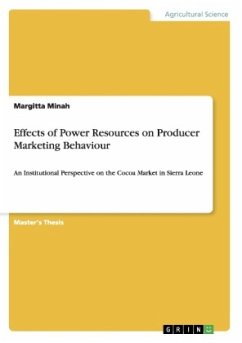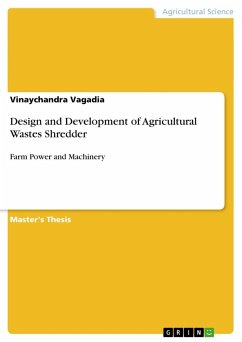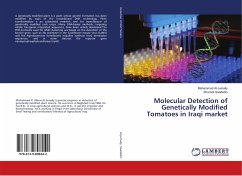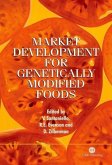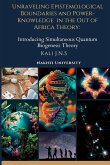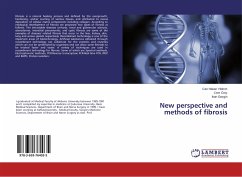Master's Thesis from the year 2012 in the subject Agrarian Studies, grade: 1.0, Humboldt-University of Berlin (Ressourcenökonomie), language: English, abstract: About two-thirds of the Sierra Leonean population depends on agricultural activities for their livelihood. Agriculture in Sierra Leone is diverse but the highest potential for increasing rural income is attached to cocoa production. Cocoa producers in the Eastern region have an option to sell their cocoa to cooperatives, companies, petty traders, resident and Lebanese buyers. Producer marketing decision is key to breaking a vicious circle of low quality, prices and incentives that hinder overall development in the sector and poverty alleviation. The purpose of this study was therefore to better understand marketing behaviour of cocoa producers in Sierra Leone with the help of New Institutional Economics. In this study, the concept of Power Resources was employed and complemented by a Value Chain Analysis to study factors which influence cocoa marketing decisions. Both qualitative and quantitative research methods were applied. First, qualitative research activities included 20 Focus Group Discussions with farmers in selected communities in the Eastern province. The research team then returned to respective communities to conduct questionnaires with 100 farmers. Considering the twelve Power Resources investigated in greater detail showed that those related to transaction costs, risks, exit possibilities, sanction power and credibility affect marketing decisions the most. The results revealed that farmers are encouraged to sell to cooperatives because of relatively lower transaction costs, risks and credible commitments. It was further found that farmers are discouraged to sell to petty traders and Lebanese buyers amongst others because of the lack of market information, the fear of being cheated and high price risks. Farmers were further found to face c

